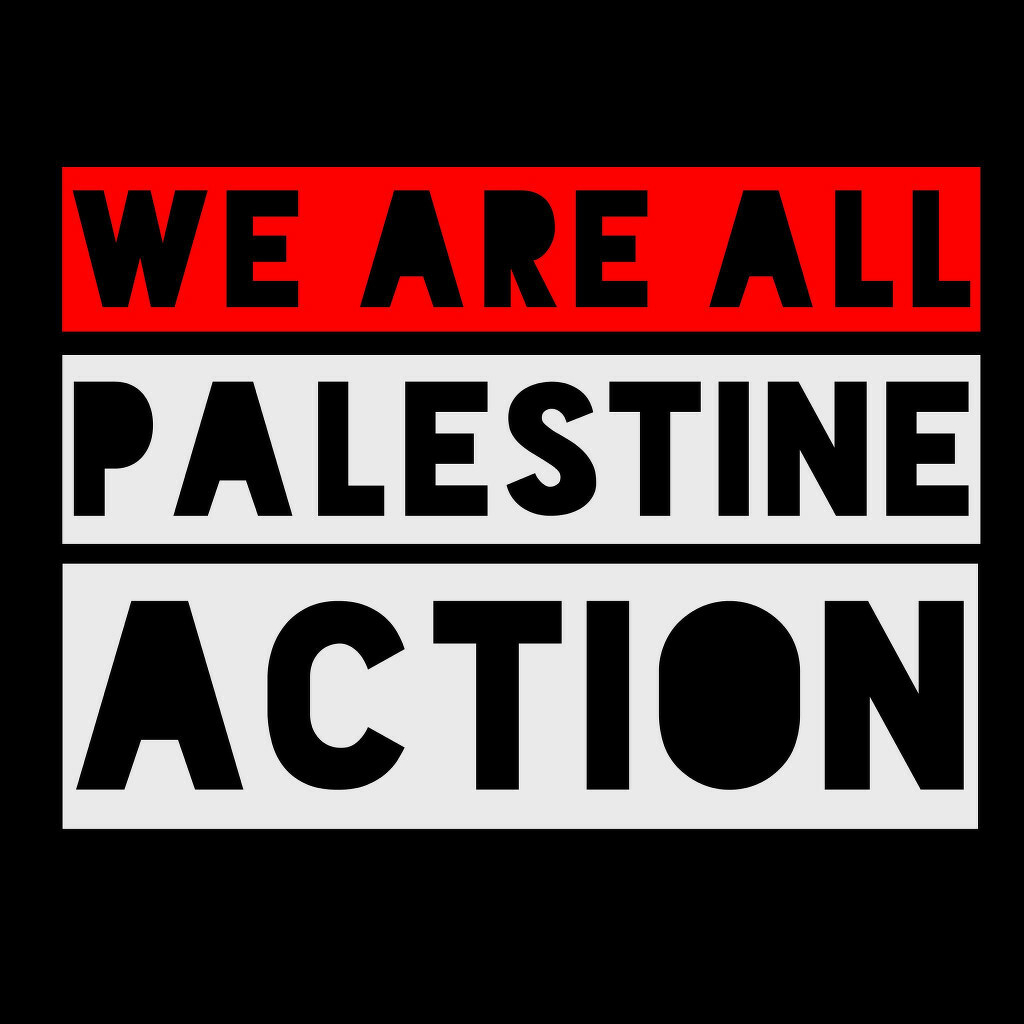Palestine
Notes on the Palestine Action proscription appeal
Amnesty UK and Liberty joined the judicial review challenging Keir Starmer’s Labour Government’s nonsense proscription of Palestine Action, which would designate a nonviolent protest group populated by a mix of British citizens — such as a daughter of a Holocaust survivor, a blind man in a wheelchair, and several hundred people with more in common with your gran — as being exactly the same as Al Qaeda.
The arrest of peaceful protestors is a violation of the UK’s international obligations to protect the rights of freedom of expression and peaceful assembly. This can’t go unchallenged."
— Amnesty UK
It was a silly, reactionary decision by this government, embarrassed by the fact that a small, informal group of activists were able to casually ride some e-scooters onto an air base with seemingly no security and daub a bit of paint on some planes. But it’s what happens when we have a prime minister who takes his marching orders from Trump’s White House.
This is essentially a question over whether UK has all the facets needed for a participatory liberal democracy or not. Supporting Palestinian liberation is how you test the health of your own liberty, it seems. If this Labour government fails to uphold the designation, then it’s a calamitous embarrassment for Keir. If it’s able to win, then Labour will have damaged to the country. Take your pick.

American sanctions are being used to memory hole Israeli war crimes: we need new platform stacks asap
YouTube wiped over 700 videos from its platform documenting Israeli human rights abuses from accounts run by the Al Mezan Center for Human Rights, Al-Haq, and the Palestinian Centre for Human Rights. This was due to the U.S. weaponising its sanctions regime against Palestinian rights groups.
The Intercept reported (linked above) that “the deleted videos range in scope from investigations, such as an analysis of the Israeli killing of American journalist Shireen Abu Akleh, to testimonies of Palestinians tortured by Israeli forces and documentaries like The Beach,' about children playing on a beach who were killed by an Israeli strike.”
While Youtube caved in fast, it’s harder to wipe everything off the internet than some (zionists) would like, and a number of the videos remain scattered across the Internet Archive’s Wayback Machine, Facebook pages, Vimeo, etc, but the damage is real. Several were only online via Youtube and each organisation’s channels represented complete online repositories accessible in one place, authenticated and easily accessed.
“I’m pretty shocked that YouTube is showing such a little backbone. It’s really hard to imagine any serious argument that sharing information from these Palestinian human rights organizations would somehow violate sanctions. Succumbing to this arbitrary designation of these Palestinian organizations, to now censor them, is disappointing and pretty surprising. … They are basically allowing the Trump administration to dictate what information they share with the global audience. It’s not going to end with Palestine.” — Sarah Leah Whitson, executive director of Democracy for the Arab World Now (DAWN)
Whitson may be shocked, but I’m not. Waiting for corporate tech to grow a spine when there’s not a clear profit motive to do so is akin to waiting for a bus you already know will never show up.
I’m a fan of the alternative platforms, particularly those running on decentralised systems. Media files can practically become like weeds on these given enough resources. Peertube, Torrent streamers, and so on exist. We can do a lot at the protocol level, but the protocol that’s really needed is chutzpah. It’s in really short supply these days. Building censorship resistant tools needs it. Depending on where you are, using them takes a little. Resisting illegal orders from powerful state agencies requires it.
There’s irony in this, as the U.S. tries to use sanctions to silence Palestinian human rights organisations, it’s threatening sanctions against the EU over its Digital Services Act, which the White House is concerned will silence “American conservatives” (this is not what the White House is really angry about and it doesn’t do that anyway). More and more, the concept of a free and open internet is on the back foot in various halls of power around the globe, and a few Big Tech companies are kind of excited by the business opportunities in shutting things down. Russia has its concept of ‘digital sovereignty’, China has its exportable firewall technology, America has sanctions. The results are the same: expanding control. We need ways and means that circumvent them all. The dumbest move is to appease any of them.
It’s not going to end with Palestine.
